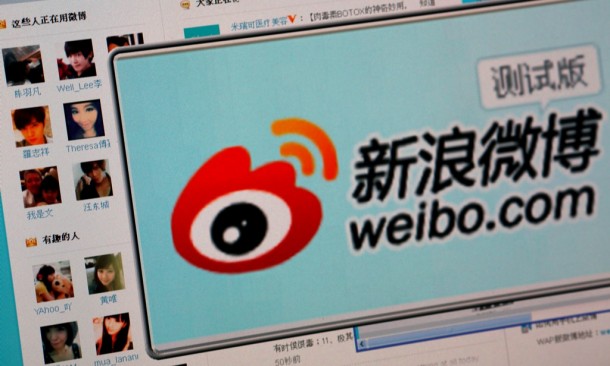BEIJING — China’s Internet is brimming with disclosures of officials collecting bribes, homes and luxury accessories as casually as they do mistresses.
But while the government tolerates such anti-corruption vigilantism, it is also extremely leery of the threat the Internet can pose to Communist Party rule.
The Internet is the new tool in the fight against corruption—a cornerstone policy of new President Xi Jinping, who has pledged to tackle the problem head-on.
But while acknowledging that China’s online world is helpful, authorities have also moved quickly to quash rumors that might fan protests that could escalate out of control, deleting microblog posts or even entire accounts.
The accounts of two people who spread potentially panic-inducing rumors of bird flu breaking out in Guizhou province were erased, according to the China Daily newspaper.
He Bing, vice president of the law school at China University of Political Science and Law, told media that his Twitter-like microblog, or “weibo,” was closed down after he forwarded what turned out to be a rumor of a student killing an Internet enforcement officer who had suspended his account.
Author Murong Xuecun, an outspoken censorship critic, said his four weibo accounts, with 8.5 million combined followers, were deleted after he posted criticism of restrictions on what university teachers can discuss with students.
China unveiled tighter Internet controls in December, legalizing the deletion of posts and accounts, underscoring the government’s desire to muzzle online debate.
Those convicted of spreading rumors and false reports can be jailed for up to 10 years.
China has more than a half-billion Internet users, and the great popularity of weibo has spawned a legion of corruption watchdogs whose posts can circulate among millions.
“Citizens have readily transitioned from being extremely reluctant to voice their views to being extremely competitive about trying to get their views out there and to gain followers,” said Ken Lieberthal of the Brookings Institution in Washington.
But protests could threaten stability and the disciplinary apparatus has moved quickly to squelch hearsay.
Police this month detained a 28-year-old Beijing woman for posting that another woman, 22, was gang-raped and thrown off a building to her death and that police refused to investigate.
Police said the victim committed suicide, but were alarmed when hundreds protested against her death, demanding an inquiry.
Also this month, four people in Xinjiang province in China’s northwest were given five days’ detention for spreading rumors about a murder that police say never happened.
The latest bureaucrat to fall from grace thanks to the Internet was Liu Tienan, sacked last week as deputy chief of the National Development and Reform Commission.
Liu was accused by a journalist in microblog posts of helping to defraud banks of $200 million and of threatening to kill his mistress who reportedly balked at the scheme.
Media fanfare about Liu’s downfall “suggested the ruling party welcomes netizens to join the anti-corruption campaign,” Zhou Shuzhen, a professor at Renmin University in Beijing told the state news agency Xinhua.
The Internet has snared numerous victims.
An official in Shanxi province was dubbed “watch brother” after cybersleuths posted photos of him wearing luxury timepieces. A deputy bank manager became known online as “house sister” for buying 20 properties in northwest China worth some $160 million and more than 40 in Beijing.
One of the most notorious cases burst into public view last November, with video posted online of Lei Zhengfu, a squat and now-former apparatchik in Chongqing, having sex with an 18-year-old mistress.
Yet another official, ex-chief of the Central Compilation and Translation Bureau, Yi Junqing, was sacked in January when his mistress posted details of their affair.
“These days the government can’t ignore this kind of social pressure because it faces increasing questions of its own legitimacy,” says Li Datong, a former journalist who lost his job for challenging censorship.
But while Xi has pledged to hunt down corrupt “flies” as well as “tigers,” referring to low- and high-ranking officials, the public is still waiting for a big catch.
“We have some pretty large-size flies, but no small tigers,” said Minxin Pei of Claremont McKenna College in the United States. “The next test case will be to see whether the government will allow a minister’s wrong deeds to be exposed, and then to go after him.”
The saga of Bo Xilai, a Politburo member drummed out of the party and arrested for corruption and whose wife was convicted last year of the murder of a British businessman, occurred before Xi became president and party chief.
China’s ultimate rulers, the seven members of the Communist Party Politburo’s Standing Committee, are “off limits” for corruption probes, Pei said.
The government responded with fury when The New York Times reported in October that relatives and associates of then-premier and Standing Committee member Wen Jiabao had secretly accumulated at least $2.7 billion in assets.
The Times’ website has remained blocked in China since then.
Additional reporting by Sally Huang.















